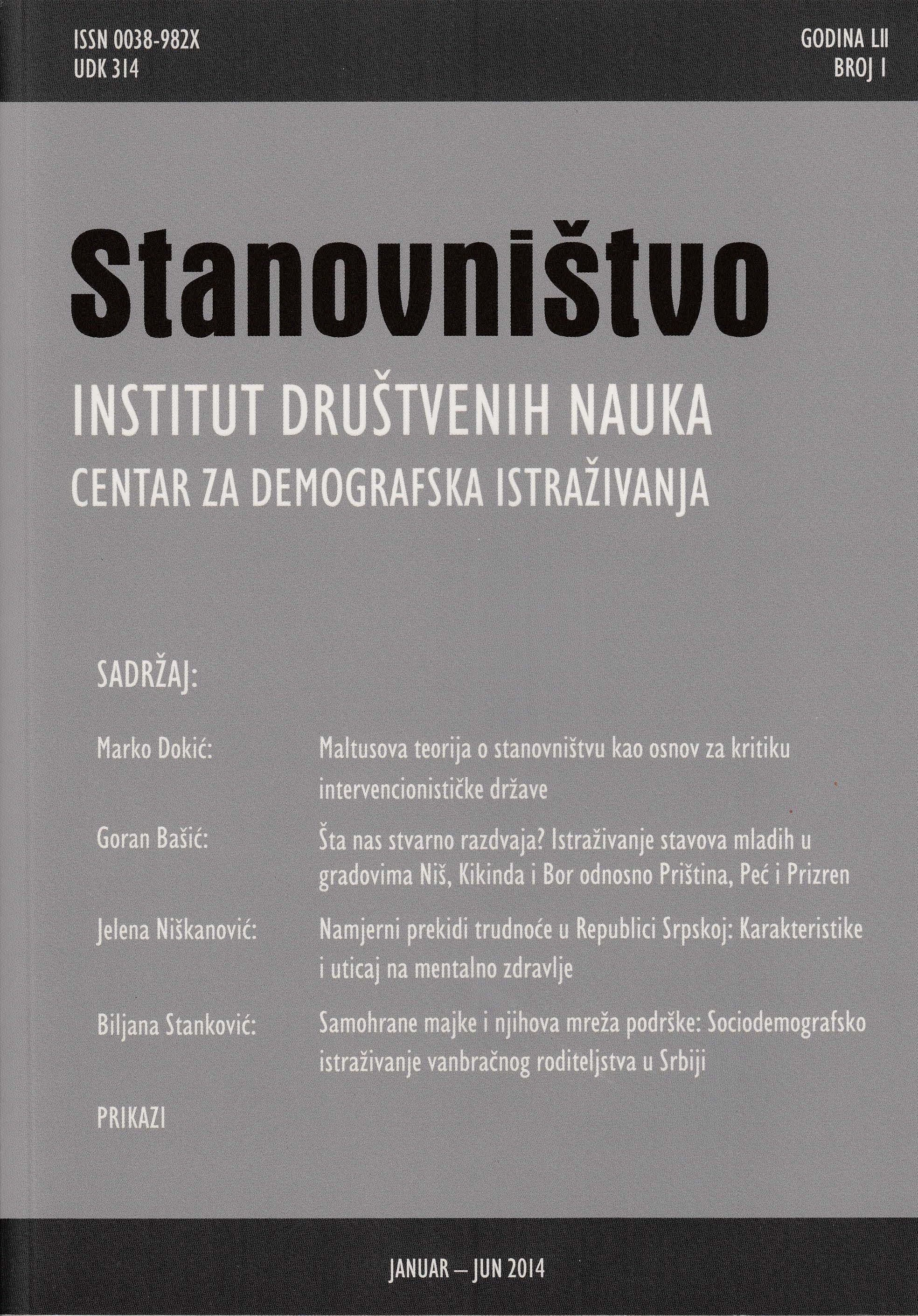Maltusova teorija o stanovništvu kao osnov za kritiku intervencionističke države
Malthus’s Theory on Population as a Basis for Criticism of the Interventionist State
Author(s): Marko DokićSubject(s): Social Sciences, Family and social welfare, Demography and human biology, Economic development, Sociology of Politics
Published by: Институт друштвених наука
Keywords: Thomas Robert Malthus; theory on population; minimal state; laissez-faire doctrine; classical liberalism
Summary/Abstract: Going by ideological debates concerning (un)justifiable state intervention, protection of individual liberty, and the question of state's role, this article analyses Malthus's theory on population. It states a thesis that theory on population leads Malthus toward the idea of a minimal state and represents a basis for criticism of an interventionist state and its paternalistic role. The article consists of an introduction, four sections and a conclusion. The introduction cites goals of the work and gives basic notes on Malthus's theory on population and its socio-historical context. Special consideration is paid on reasons that lead to desertion of his ideas with a special focus on changes within liberal ideology, that lead to dissociation from classical liberalism and a merging of liberalism with socialism. The first part examines basic principles of Malthus's theory on population – primarily the idea that the population multiply faster than the food supply, and that population, when unchecked, increases in geometrical ratio, while subsistence increases only in arithmetical ratio. Afterwards, this Malthus's idea is linked to the status of the poor, and is concluded that the state intervention is useless, being that the troubles this part of the population faces are a consequence of their own actions. Therefore, the role of the state should not be care for the poor. In the second part positive and preventive checks to population are examined. Preventive checks are further analyzed because Malthus gives them more importance. The third, central part, is dedicated to Malthus's criticism of the Poor Laws and, within it, his opposition to the state's intervention is further analyzed. According to Malthus, laws that are passed in order to improve the status of the poor have an opposite effect. Even though their aim is to decrease poverty, they increase it. Their tendency is to lead to an increase in population, without the simultaneous increase in food resources that are needed to satisfy the needs of that number of people. The poor, when given an increase in wages, tend to marry more and form families with a larger number of children that they can't support themselves. In that way, they become more dependent on the state, and this leads to an increase in poverty. The fourth part analyzes the misgivings of Malthus's theory, especially its negligence of technological advancement. And it is because of this omission that Malthus couldn't come to a different theory concerning population growth, rather than the one that he had formed. Finally, after all the important elements of Malthus's theory on population are analyzed, the importance of his thought and a theory of minimal state are examined. Stated and defended is the stance that the theory of minimal state is not value-neutral, and that the only minimal state that can exist is a liberal minimal state, and therefore Thomas Robert Malthus belongs to that tradition within the liberal thought.
Journal: Stanovništvo
- Issue Year: 52/2014
- Issue No: 1
- Page Range: 1-16
- Page Count: 16
- Language: Serbian

